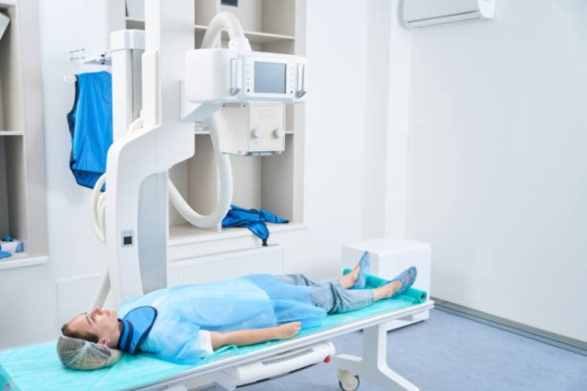A Closer Look at the Rise of Advanced Stage Cervical Cancer
Dec 27, 2023 By Madison Evans
Advanced stage cervical cancer is on the rise around the world and can have serious consequences for women who receive a diagnosis. With its symptoms not often presenting themselves until it has already progressed to later stages, many women remain unaware of just how dangerous this type of cancer can be. In this blog post we’ll take an in-depth look at the causes, risk factors, warning signs, and treatment options surrounding advanced stage cervical cancer — so you know what to watch out for and where to turn if you do receive a diagnosis.
What is Cervical Cancer?
Cervical cancer is a type of cancer that begins in the cervix, a narrow passageway located at the lower portion of the uterus. It’s most commonly caused by persistent infection with certain types of human papillomavirus (HPV).
Regions most affected and possible reasons for the increase
In recent years, the occurrence of advanced-stage cervical cancer has been increasing in parts of Latin America and Africa. Some believe that this is due to a lack of access to HPV vaccines and screening tests in these regions. Additionally, the stigma associated with discussing sexual health may also prevent women from seeking regular checkups.
In regions where advanced stage cervical cancer is more common, the mortality rates associated with the disease are typically higher due to the lack of available treatment options. That’s why it’s especially important for women in these regions to receive adequate screenings and preventive care as soon as possible.
Risk Factors of Advanced Stage Cervical Cancer

There are certain factors that can contribute to the development of advanced stage cervical cancer, including:
- Being in contact with HPV at any point in time
- Having a damaged immune system
- Using certain types of birth control methods, including the vaginal ring
- Having a history of smoking
- A previous sexually transmitted infection
- Being exposed to toxins such as DES (diethylstilbestrol)
- Having multiple full-term pregnancies or children at an early age
Warning Signs of Advanced Stage Cervical Cancer
Symptoms of advanced stage cervical cancer aren’t always obvious, but there are some common warning signs to watch out for. These include:
- Abnormal vaginal bleeding or spotting
- Pain during intercourse
- Pelvic pain and/or pressure
- Unusual discharge from the vagina
- Painful urination and/or blood in the urine
If you experience any of these symptoms, it’s important to seek medical help right away.
The Impact of Advanced Stage Cervical Cancer on Women's Lives
Advanced stage cervical cancer can have serious implications for the physical, mental, and emotional wellbeing of a woman. In addition to physical symptoms like pain and fatigue, women may also experience a range of psychological issues such as anxiety and depression.
It’s important for women who receive a diagnosis of advanced stage cervical cancer to seek out supportive resources in their community to help manage the physical and emotional effects of the disease. This can include support groups, counseling, and other forms of therapy.
Strain on healthcare systems
Advanced stage cervical cancer places a significant strain on healthcare systems, as treatment is often intensive and costly. In some cases, patients require specialized care and treatments that may not be available in their local area. This means that women may have to travel great distances for proper medical attention — placing an additional burden on them during an already difficult time.
Efforts to Combat the Rise of Advanced Stage Cervical Cancer
Organizations around the world are working together to combat the rise of advanced stage cervical cancer. This includes providing access to HPV vaccines and encouraging women to seek regular screenings for early detection.
Education initiatives are also being implemented in many countries, in order to help reduce stigma and increase awareness about the importance of preventive care.
Treatment Options for Advanced Stage Cervical Cancer
The treatment options for advanced stage cervical cancer depend on several factors, such as the stage of the disease and how far it has spread. The most common treatments are chemotherapy, radiation therapy, and surgery. In some cases, a combination of treatments may be recommended.
It’s important to note that the side effects associated with these treatments can vary greatly. It’s important to discuss these with your doctor and understand what you can expect during treatment.
Advances in treatment options

Advances in technology have led to the development of new and improved treatments for advanced stage cervical cancer. For example, immunotherapy is a type of treatment that works by stimulating the body’s own immune system to fight off the cancer cells. In some cases, targeted therapies such as monoclonal antibodies can also be used to target specific areas affected by the disease.
Early detection and prevention
The best way to combat advanced stage cervical cancer is to focus on early detection and prevention strategies. This includes regular screenings for HPV, as well as vaccination programs for young women in certain areas. It’s also important to practice safe sex and get tested regularly for any sexually transmitted infections.
Conclusion
Advanced stage cervical cancer is a serious illness that affects millions of women around the world each year. By understanding its causes, risk factors, warning signs, and treatment options, we can work together to reduce its impact and create better outcomes for those affected. With the right prevention methods and early detection techniques, we can work towards a future without advanced stage cervical cancer.

Phobias Unraveled: Causes, Types, and Coping Mechanisms

How To Begin Your Race Walking Journey

Jojoba Oil Magic: Transformative Effects on Face, Hair, and Body Health

B Vitamins: Exploring Their Numerous Health Perks

A Comprehensive Guide On How To Do Superman Core Exercise

Comparing the Efficacy of Spray Sunscreen and Lotion

Benefits of Rambutan


